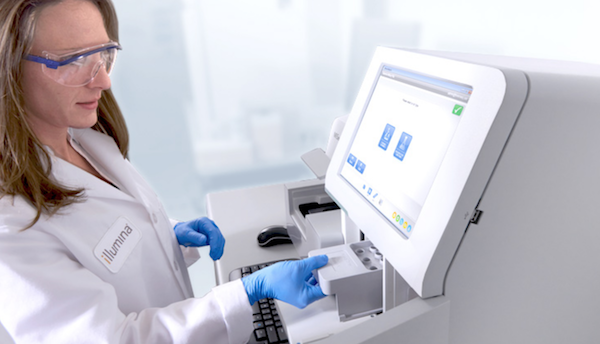Sign up for our free daily newsletter
Get the latest news and some fun stuff
in your inbox every day
Get the latest news and some fun stuff
in your inbox every day
What's the next big thing for humanity?
Think about it. What is big today? Googling, Netflix, Discovery Vitality points, Amazon, Parkruns, iPhones and Instagram. Twenty years ago, it was Coca-Cola, blue jeans, bank notes, Camel cigarettes and the Lion King. But what's next? What will be big in 10 years' time? That's where we want to get invested!
I'd say that genetics and gene therapy will be huge by then. People are having fewer children, living longer and want to know their genetic makeup. We want to know our risk of getting cancer and Alzheimer's. We want our babies to be born without defects.
Hold on, what are genes? If you snoozed through school biology, a gene is a string of DNA that controls the development of one or more traits, and is the basic unit by which genetic information is passed from parent to offspring. Genes are arranged in DNA sequences called genotypes. Some genetic traits are instantly visible, such as eye colour or number of limbs, and some are not, such as blood type, or the thousands of basic biochemical processes that constitute life.
Genetic tests can now reveal unique traits embedded in your genetic code that may put you at risk for certain health conditions. Companies which test your blood for cancer tumours in the bloodstream are being launched. This can help you alter your lifestyle, or even undergo surgery, to try and prevent the onset of disease. Non-invasive prenatal testing is a way of examining foetal DNA by taking a sample of blood from a pregnant woman, to identify potential health problems in new-borns, very early on.
There has been an explosion of consumer genomics and population sequencing services, with over 100 now active globally. Ancestry tests can identify our likely heritage, including the origins of our great-grandparents. Other tests are can solve parental mysteries or help to discover long-lost relatives. The big direct-to-consumer genetic services companies are 23andMe, Ancestry and Helix in the US and WeGene in China. Some are as simple to use as couriering off a saliva sample. Nearly 12 million consumer samples have been sequenced to date (including 7 million in 2017 alone). The more people that get sequenced, the more useful the database becomes. There is even a new service to test the genes of your dog, called Embark.
A number of large scale sequencing initiatives are underway, to cover whole populations. These include 'All of Us' and the Million Veteran Program in the US, and Genomics England.
You may also have read about CRISPR-Cas9 technology? That's the process where the disease-causing DNA in a person's makeup can be snipped out and replaced, and then healthy stem cells can be returned to your body (perhaps in the bone marrow) to spread throughout your body. You are cured! We are moving closer to personalised medicine.
Great, but how can one invest in this area?
The best option is to invest in the dominant company that makes the genetic sequencing machines, called Illumina. It develops, manufactures and markets integrated systems for the analysis of genetic variation and biological function. It has a market cap of $51 billion, over 7,000 employees and is growing fast. It is based in San Diego, California, and was incorporated in 1998.

The first sequencing of the whole human genome in 2003 cost roughly $2.7 billion. Illumina has evolved through a series of technology leaps, often after acquisitions, in order to progressively reduce the cost of sequencing a single human genome from US$1 million in 2007 to about $500 now. The goal is to get that below $100.
Illumina's newest Novaseq 6000 machines are about the size of a dishwasher and cost around $1 million each. Their customers include genomic research centres, pharmaceutical companies, academic institutions, clinical research organizations and biotechnology companies. In addition, almost all of the direct-to-consumer services mentioned above use Illumina machines.
Illumina's revenues are increasingly being driven by sequencing consumables (about 65% of sales in 2018) and servicing (about 20% of sales), indicating a shift from a focus on capital equipment.
To add this company to your portfolio, you should send more money to your Vestact account in New York. Alternatively, send us an email and we will propose another option. The Illumina share price is currently $350 per share. The share code is ILMN.
Best wishes
Paul Theron